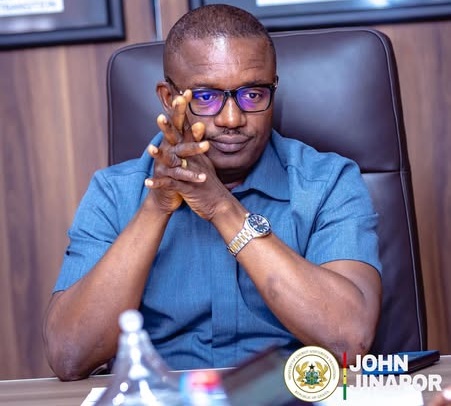Ghana has secured $1 billion for climate financing, Mr John Abdulai Jinapor, the Minister of Energy and Green Transition, has said.
He said the money would be used for key projects, including the Scaling-up Renewable Energy Program (SREP), the Forest Carbon Partnership Facility (FCPF) as well as develop a project pipeline through the Green Climate Fund (GCF) and the Ghana Climate Innovation Centre.
Mr Jinapor said the country’s newly approved five-year Renewable Energy and Green Transition Action and Investment Plan was also expected to deliver a series of high-impact interventions to accelerate sustainable energy.
The sector minister said this in a speech read on his behalf by Mr Seth A Mahu, the Director of Renewable Energy and Green Transition at the Ministry at a forum organized by the University of Energy and Natural Resources (UENR) in Sunyani.
Mr Jinapor explained that the investment plan was anchored in the National Energy Transition Framework and the Renewable Energy Master Plan that implemented impactful initiatives like the smart solar street lighting, installation of electric vehicle superchargers along major highways and an increase in renewable energy capacity to at least 1,400 megawatts.
Additionally, the plan targets universal electrification, aiming to achieve 99.98 percent access to electricity nationwide by 2030.
The University organized the forum to mark its International Day Celebration to reflect on the institution’s achievements and strengthen its international collaboration as it advances to become a world-class university.
It was on the theme: “Promoting Internationalization, Visibility and Impact through Diversity and Inclusion”, and serves as a tribute to the power of diversity in fostering inclusion, its role and visibility in amplifying impact as well as strength of partnerships in driving meaningful progress.
Mr Jinapor explained that the government had also established the Renewable Energy and Green Transition Investment Fund to support transformative projects, unlock private capital, and promote innovation, research, and development.
He said: “The nation’s energy transition is not only technological, but fundamentally human”, adding that “no transition can be truly sustainable without the skills, institutions and innovation ecosystems that drive it forward”.
Mr Jinapor said the nation was collaborating with international partners, including the International Solar Alliance and the World Bank for capacity building and also to establish Centres of Excellence focused on developing human capital for the energy transition.
He added that the government was also investing in technical and vocational education to equip young people with skills in renewable energy, electrical systems, green construction and clean mobility, saying selected training centres were undergoing transformation to become regional hubs for green technologies.
Miss Linda Serwaa Mensah, the Principal Export Development Officer of the Ghana Export Promotion Authority (GEPA), noted that the global economic landscape was evolving hence the need for the nation to adopt a strategic and forward-looking approach for competitive, value-driven international trade.
She said the country’s export portfolio encompassed a broad range of products and services from agribusiness and processed industrial inputs to arts and crafts, manufactured goods, and service-based offerings, reaching an expanding array of global markets.
Ms Mensah said educational diplomacy remained a catalyst for economic growth, adding that it was imperative for the UENR to build and strengthen international partnerships and foster cross-border collaboration.
Initiatives like joint research programmes, student exchange schemes, and global academic partnerships would strengthen the nation’s soft power and open new avenues for trade and investment to thrive.
GNA





